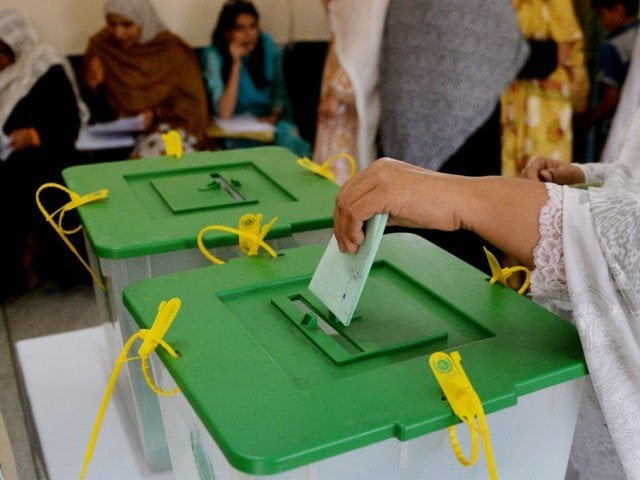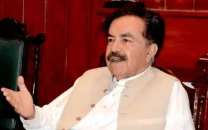SC restores ‘omitted’ affidavits in nomination forms for 2018 polls
Failure to attach SC-approved affidavits to result in rejection of nominations

Representational image. PHOTO: AFP
These affidavits include declarations by the candidate about not defaulting on a bank loan or utility charges, details about candidate’s spouse (s) and dependents and their businesses, details of any criminal charges, education credentials, taxes paid in the last three years, contribution to community’s welfare, donations to the party or sums received from the party and net assets with annual increase/decrease in them.
Candidates will also need to declare information about their travels abroad during the last three years and cost incurred on these visits. They will permit Foreign Office to obtain information if they had been citizen of any other country, or applied for that.
Top court suspends LHC order rejecting newly-drafted nomination papers
Hearing a petition filed by National Assembly’s former speaker Ayaz Sadiq against the Lahore High Court (LHC) decision to redraft nomination forms, the Supreme Court’s five-judge bench earlier in the day directed the ECP to prepare draft of missing affidavits and submit to the court immediately for approbation.
After receiving the drafts, the court released written orders later in the evening with direction for the ECP to inform all candidates of the national and provincial legislatures to file these affidavits along with their nomination papers.
Polls schedule issued on June 1 fixed five days from June 2 to 6 for submission of nomination papers. However, the schedule was amended after the LHC ordered restoration of the omitted information from the nomination forms.
A number of affidavits that were part of nomination papers in the last general election were omitted when parliament made these forms part of Elections Act in October 2017, despite reservations of the ECP. The ECP wanted these matters be left to it.
Since these forms had become part of law, many legal experts believed that these could not be changed without the parliament’s approval. However, the court order has given legal cover to the changes made in the new nomination forms being used for next month’s elections.
The Supreme Court order said candidates who had already filed their nomination papers should file the said affidavit with the returning officers by or before June 11, 2018. It warned that failure to file such affidavit would render the nomination papers incomplete and liable to rejection.
“If the affidavit or any part thereof is found false then it shall have consequences, as contemplated by the Constitution and the law. Since the Affidavit is required to be filed in pursuance of the orders of this court, therefore, if any false statement is made therein, it would also entail such penalty as is of filing a false affidavit before this court,” said the SC order.
The court also directed the ECP to put these affidavits on its official website; communicate to all the returning officers; and publicise them in all the leading newspapers. It also asked the ECP to inform the public through the electronic media in this regard.
“With regard to the information omitted from the Nomination Papers and Form A & B, as issued in terms of Elections Act, 2017, when examined in juxtaposition with the requirement of the Nomination Forms previously in vogue under the ROPA, 1976, it appears that the information, no longer required to be disclosed, prima facie, would facilitate the determination of the qualification or disqualification of a candidate and would lead to greater transparency regarding the credentials of a candidate facilitating the electorate in making a more informative choice,” the order said.
LHC verdict suspended after considering supremacy of Parliament: SC
Earlier during hearing of the case, the CJP asked why lawmakers were shying away from disclosing information. The counsel for the applicant said neither his client, Sadiq, nor his political party, the Pakistan Muslim League-Nawaz (PML-N), had any objection to the disclosure of additional information.
He said the leadership of his client’s party had come on record in this regard. However, according to his contentions, some of such information previously required in the nomination forms is not really necessary.
The judgment said when the bench examined the omitted clauses of the nomination forms, the petitioner’s counsel could not persuade it that such disclosure in any manner would prejudice any candidate. “At best, some information may be unnecessary or surplus” it added.
“As an interim measure, we believe that such additional information, which was required to be disclosed through the Nomination Papers & Forms under ROPA, 1976 and now omitted through Nomination Papers contemplated by the Elections Act, 2017 must be disclosed by a candidate. Such disclosure is necessary to ensure the sanctity and integrity of the General Elections, 2018, as if the instant appeals eventually fail, complications in this behalf may arise,” it added.



















COMMENTS
Comments are moderated and generally will be posted if they are on-topic and not abusive.
For more information, please see our Comments FAQ